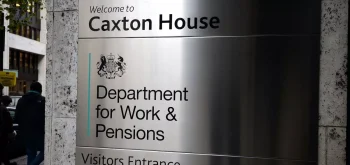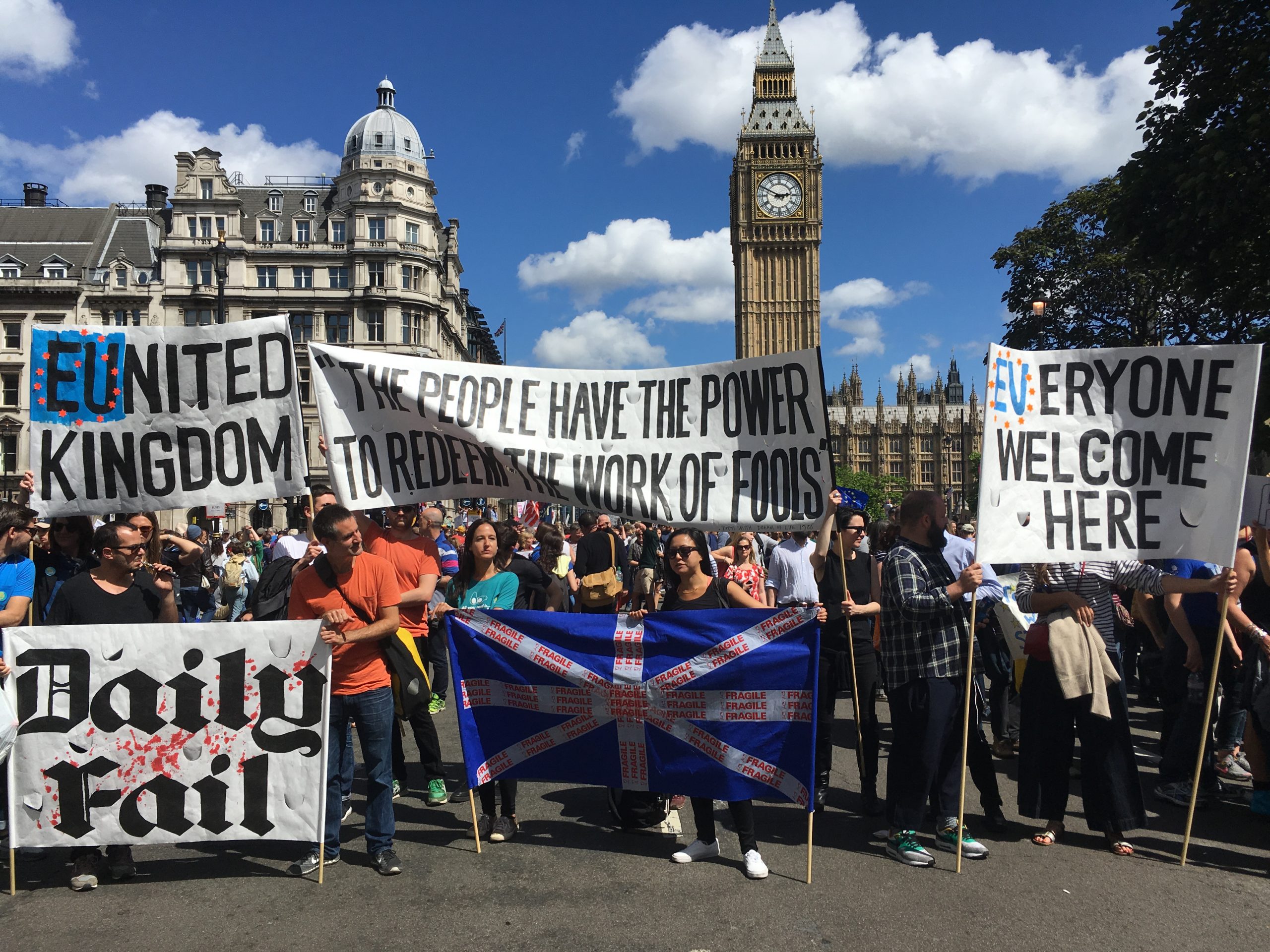For those of a pessimistic disposition, the clouds that loomed over Westminster this morning could have been seen as presaging a dark day for democracy in the United Kingdom. Instead, they were here for Boris Johnson, harbingers of what should be the end of his premiership. The Supreme Court eviscerated the prime minister’s decision to prorogue Parliament, Lady Hale handing down a judgment that was damning in both its unanimity and its effect. The justices were united in ruling to immediately quash the government’s prorogation, permitting Parliament to return as though it had never, legally, been sent away.
Most court-watchers thought the writing was on the wall for the government on Thursday afternoon, when Lady Hale began questioning Lord Pannick on what remedies might be suitable to redress the wrong. Yet, no one anticipated a judgment that was quite so brutal, with the general view amongst the legal community being a majority decision finding that the prorogation was unlawful, with two or three dissenting judges preferring to find that it was a matter of politics. Instead, by the court ruling unanimously on the illegality of the prorogation, it has served to emphasise the extent of the prime minister’s transgression, to insulate the court from claims of partisanship, and to reiterate the supremacy of the rule of law.
I’m going to go ahead and wildly speculate that Lady Hale’s spider brooch is a sly reference to @LeoVaradkar‘s Athena jibe to @BorisJohnson. Arachne challenged Athena, goddess of wisdom and crafts, to a weaving contest. Such hubris resulted in her being transformed into a spider pic.twitter.com/8UZxwXplZF
— Dr Marisa Ronan (@PsynapseEU) September 24, 2019
The court could have avoided ruling on the legality, at all, of the prorogation, with the first half of the judgment focussed on whether the court should stay out of the issue entirely, as the English High Court chose to do. his question, one of ‘justiciability’, would have provided the Supreme Court with an easy way out of a fray that could, to some of the justices, have seemed too close to politics for their liking. If the court had chosen this route, they would have found that the issue was one which was, whilst being unpalatable and even, possibly, unconstitutional, was something for the political organs of the state to resolve- not something for judges.
Yet, in choosing to find that it was a matter for the courts, the Supreme Court has emphasised both the supremacy of Parliament, and the rule of law. Simply because the matter involves the executive exercising its prerogative powers does not mean that the courts must step away- as the court found, ‘many, if not most, of the constitutional cases in our legal history have been concerned with politics in that sense’. Instead, the judgment pointed to the fact that the courts have long held that the executive- whether as monarch or elected government- must be bound by the law, quoting the Case of Proclamationsfrom 1611, where the King’s Bench found that ‘the King hath no prerogative but that which the law of the land allows him’.
Logically, such a conclusion should have been inevitable. The alternative would have been that Parliament would have had to find some method of holding the government to account whilst it was not sitting. Sir James Eadie QC, when questioned on this last week, suggested that parliament could take action after it returned. Even with the very best will in the world, any such action would, as the court put it, merely ‘amount to closing the stable door after the horse had bolted’, allowing the government to act with impunity, able to force through its policies having hamstrung the legislature.
In any event, reliance on political artifice also ignores the fact that the law exists independently of Parliament. Whilst Parliament may will something to be law, and make it so, it does not follow that just because it has not made an act against the law, such an act is lawful. Frequently, the courts are asked to adjudicate on matters where ministers have been scrutinised by parliament, but this does not ‘mean that he is…immune from legal accountability to the courts’. Rather, it is the courts’ role to ‘determine the legal limits of the powers conferred on each branch of government’.
Once this hurdle was surmounted, the prospects of the government’s decision to prorogue being upheld were negligible. Whilst Lady Hale kept the audience on tenterhooks, with an age passing between her saying the matter was justiciable and then that it was unlawful, a finding of justiciability coupled with legality was never a likely outcome. To make this connection, the court would have had to have found that whilst there were rules that it could enforce, they had not been broken here. The justices were faced with a government that had not properly explained its decision, had failed to provide a witness statement, and had prorogued parliament for an exceptional length of time. Couple this with the UK going through the most significant period of constitutional upheaval since the 17th century, and the court would have quite reasonably been asked ‘if not now, when?’.
What may be Johnson’s only saving grace- and what he is likely to rely on to justify his remaining in situas prime minister- is that the court did not look at his motive in deciding on the legality of the prorogation. The justices had been asked to consider that the government had been improperly motivated, following the Scottish Court of Sessions’ conclusion. In focusing on the effect of the prorogation, the court moved the debate away from the emotive topic of whether Johnson lied to the Queen- which would have lit a political bonfire that the courts would rather have nothing to do with- towards the relatively benign issue of constitutional principle.
Even here, the court was careful to emphasise the level of discretion that was available to the prime minister in exercising the prerogative, and the failure of Johnson to meet what is, by legal standards, a relatively low hurdle of ‘reasonable justifications’. The courts have historically given wide latitude to the executive on matters of reasonableness- Johnson’s undoing was the fact that he gave no reasons at all. Instead, the court was faced with ‘unchallenged evidence’ from John Major on why the length of time was excessive, with the prorogation taking place in circumstances that were ‘quite exceptional’. Consequently, it was impossible for the court to conclude that the prorogation was justifiable for any reason, as none was provided.
Whilst the court may have been careful to emphasise the deferential role that it plays in matters that touch upon the political actors, its remedy showed the level of contempt that it has for this government. When asked about remedies, Lord Pannick, appearing for Gina Miller, requested a declaration of unlawfulness, trusting that the government would obey and recall Parliament, but suggested that the court retain the option to quash, or strike down, the prorogation should the government fail to do so. No such faith was shown by the court. Instead, they quashed it with immediate effect, unwilling to give the government any more time to prevaricate. ‘It is for Parliament to decide what to do next’.
Brexiters are now frothing at the mouth, claiming that this is a remainer court conspiring with the liberal elites to stop Brexit, whilst even the statement from No. 10 refused to accept that the decision was ‘right’. This is conspiracy-riddled drivel. The reality is that this is a vehement statement on the supremacy of the law from a completely united court, emphasising that the institutions that lay at the core of our constitution cannot be unlawfully prevented from fulfilling their duties. It is a decision that is completely consistent with the foundation of our constitutional system- a system where we are not ruled by some aspiring autocrat, with unique insight to the ‘will of the people’, but by our elected representatives in Parliament. And that they will be heard.







Back from the looking glass